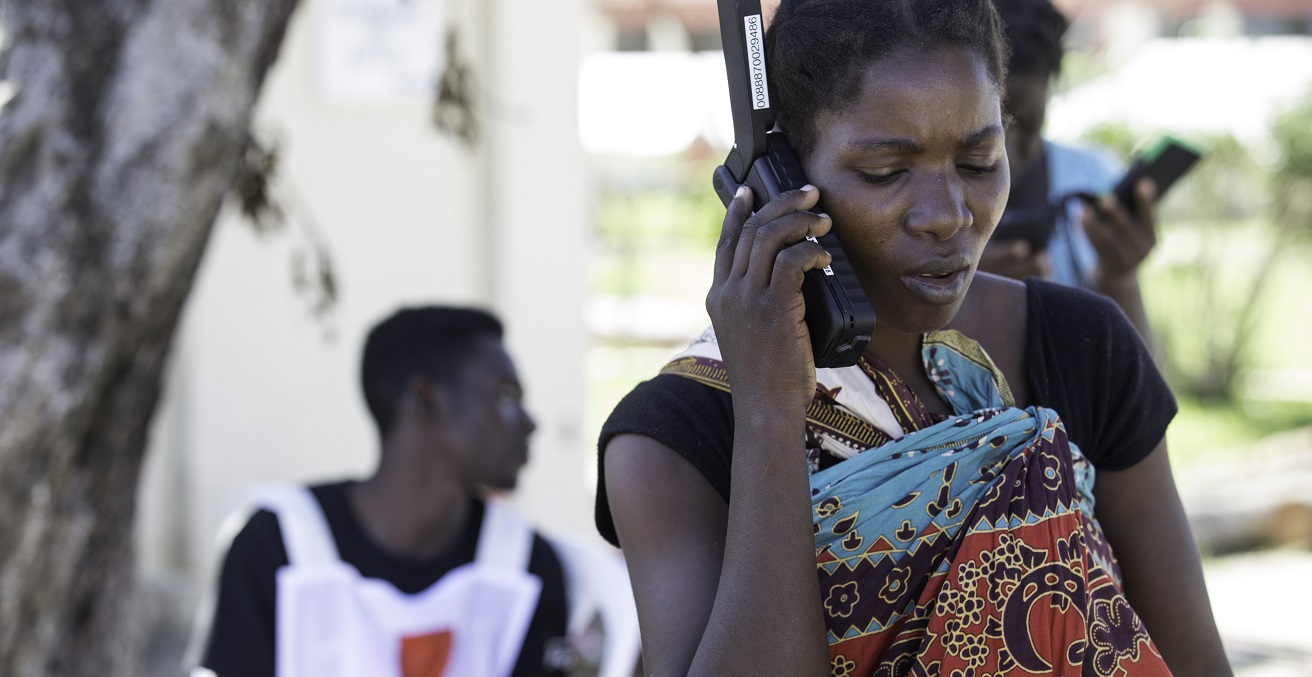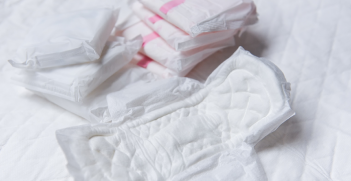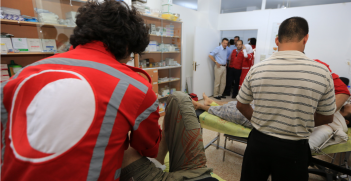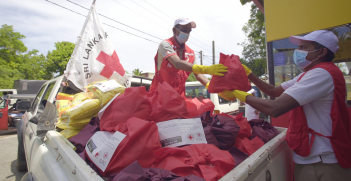After Cyclone Idai: Disaster Response Through a Gender Lens

The International Committee of the Red Cross “Restoring Family Links” programs seek to reconnect families separated by conflict. Implementation challenges in the form of gender bias are ever present.
This article is part of the “Gender & Humanitarian Action” series run by the International Committee of the Red Cross in partnership with Australian Outlook. The AIIA National Office and the ICRC will be holding a webinar focusing on Gender and Humanitarian Action on Tuesday, March 9. You can register to attend in person or online here.
African culture is diverse and beautiful. But like many other places, I have seen women here experience bias and discrimination. In Malawi, while helping reconnect families separated by the unprecedented destruction of Cyclone Idai in 2019, gender disparities between men and women were clear to see. Prior to this, my exposure to Malawians was limited to people working at the Malawi Red Cross headquarters in the capital, Lilongwe. Malawians are a friendly people, welcoming to strangers. No wonder the country is termed “the warm heart of Africa.” The people are indeed very warm.
Despite this, what I observed during the cyclone disaster recovery is what can be observed in many societies. That is, the precedence of a patriarchal system that puts women at a disadvantage compared to their male counterparts – with constrained space for women to share their opinions.
The Malawi Red Cross, with support from the International Committee of the Red Cross (ICRC), responded to Cyclone Idai by offering free phone calls and other services under its Restoring Family Links (RFL) program. The cyclone caused widespread damage to communities, and many families were separated. For most, separations occurred while moving from their destroyed homes to internal displacement camps. There were many camps, so it was difficult for families to know where and how to begin searching for lost loved ones. Realizing this need, the Malawi Red Cross and ICRC offered their services in the form of its RFL program.
When cyclone Idai hit, I first undertook an assessment to better appreciate needs, coping mechanisms, and the social structure of communities. Interviewing both men and women was important to hear a diversity of perspectives. This was also done appreciating that women, in general, make sacrifices to keep families together during difficult situations. This is where we ran into problems. We noted women were not being given an opportunity to share their opinions. When we specifically directed questions to women, their answers were often muted or constrained. In the best-case scenario, the woman would respond but only to confirm the views shared by their male counterparts. As we continued receiving only male perspectives, we made efforts to try and understand the root cause of this pattern. One volunteer shared with us that cultural norms dictated that women are expected to be silent at gatherings, unless they are asked to speak up by camp leaders. Regrettably, camp leaders were all male, so they would only ask their male counterparts to speak.
Furthermore, when we offered the free phone call service, it was mostly men, as “heads of the house,” who would make the calls. We knew that women wished to make calls to check on the wellbeing of siblings and parents. We needed to hear the women’s perspective.
Therefore, we came up with a strategy to have meetings with everyone and then ask the women to remain behind after the group meeting. As I am a woman, this idea was easily accepted by the camp leadership. There was no threat in having women remain and talk with other women. Interestingly, earlier I had observed during the interviews that our male driver was accorded more respect than us. So, I would ask him to ask the questions himself while I took note of the responses. One camp leader laughingly said, “now that we have finished important matters, you can go ahead and gossip as women.” To them, it appeared that as we were women, we would not have any important matters to discuss. We all laughed it off, but it was not gossip time. We took the time to have serious conversations on the impact of family separations. Several women shared that they felt vulnerable living in camps without the protection of their husbands or adult sons. They were articulate and shared very valuable information on possible areas of search. We were glad we got these moments to engage with the women. It was fruitful. We offered them access to free phone calls and they gladly accepted, calling their own relatives.
When it came to spreading word of the Red Cross restoring family links services, the women came up with their own way of disseminating news of this support. Amongst themselves, they agreed to share as much information with their female counterparts in the mornings while at the well fetching water. The word got around quickly, and we noted an increase in the numbers of women coming for services.
The topic of gender disparity has been on the table for a long time. To mitigate the issue, the government of Malawi is developing policies and programs that promote women’s rights, including a national gender policy. Changing harmful social customs takes time. The Malawi Red Cross Society promotes gender equality by mainstreaming gender in its programs. Most importantly, it also maintains gender parity among its volunteers. This involvement of women from rural communities as Red Cross volunteers gives them a voice in the humanitarian space. Furthermore, their involvement allows for participation in decisions that affect them. For me, the lesson learned from Cyclone Idai was a simple one – that the specific needs of women can be easily overlooked if a conscious effort is not made to include them.
Lilian Musimwa is an ICRC Restoring Family Links Field Officer based in Zimbabwe.
This article is published under a Creative Commons License and may be republished with attribution.





